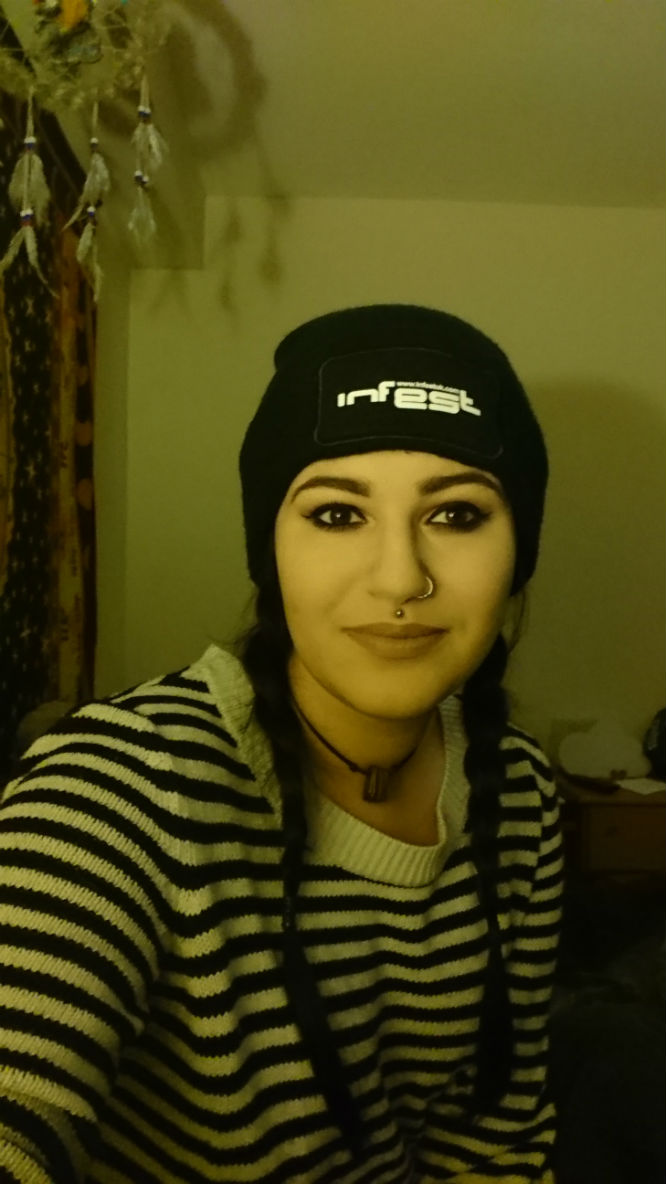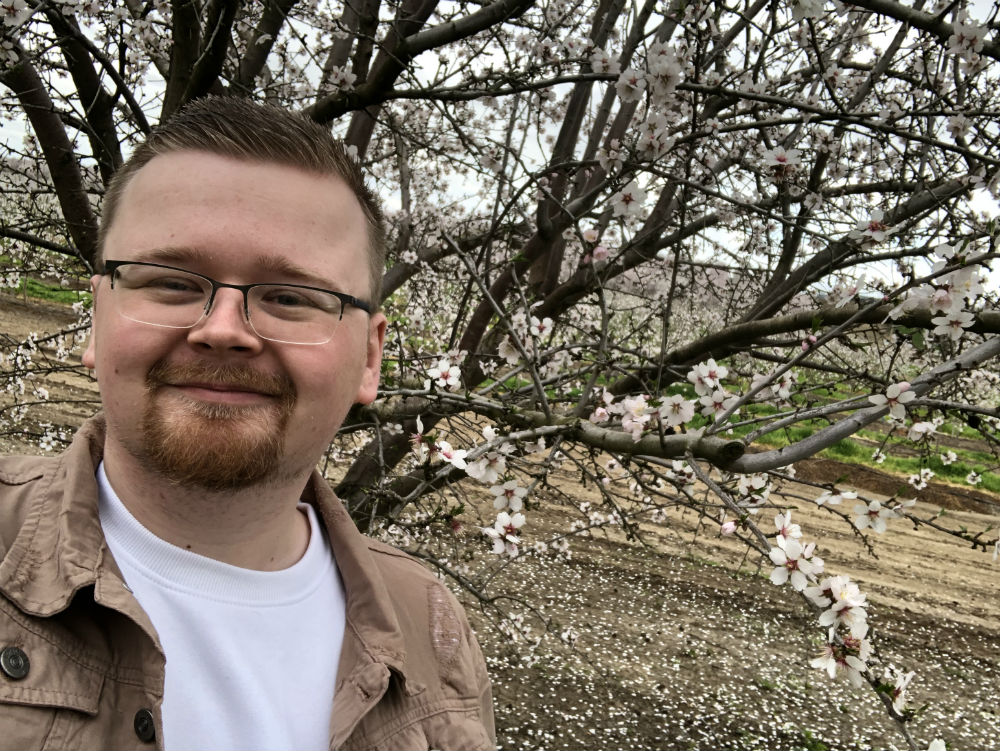To mark Mental Health Awareness Week 2019, some of Female First's staff have put together their own stories of dealing with personal struggles. Note that some of what they have written may trigger an adverse reaction if you are struggling to cope with your own mental health. If you need someone to talk to, you can call the Samaritans in complete confidence, for free, on 116 123.
Lucy, Female First Editor

For as long as I can remember I’ve had a suppressed mood. When I look back at my childhood, I can’t pinpoint a specific moment when I started to feel this way; I just can’t ever remember a time when I have been truly happy.
I didn’t tell anyone for a long time as I thought it was a result of circumstances - a bad relationship, eating the wrong things and at one point, I even thought I was just an ungrateful person. You see, people looking to my life might ask, "what has she got to be depressed about?!" but as one very wise person once told me, "the things that we are told should make us happy aren’t a prescription for happiness". You might have a good job, a loving partner, a comfortable home, supportive family and fun friends but even with all that, it’s still possible to feel sad.
I look back on so many occasions when depression took the shine off my experiences, because it was there hanging over me like a black cloud. Experiences that should have been some of the best days and times of my life.
After weeks of counselling, I realised that I needed help from elsewhere and that is when I decided to take an anti-depressant. They didn’t make me instantly happy, but I feel more stable on them - like I am able to cope with things that would normally floor me.
The only way I can describe depression is like falling into a deep, black pit and not being able to get out. When I am taking my medication, I feel like there is a trampoline at the bottom of the pit and with a few bounces I can reach the top and climb out.
Perhaps some people are born with low mood and I am just one of those people. If you think you fall into this category too, there is no shame in feeling numb when everyone around you appears to be fully engaged with life. Everyone is battling with their own demons, so never assume anything.
Focus on you. Talk to someone: a friend, family member, people in a support group or a professional; anyone you can place your trust in, because you are not alone.
That feeling - the one that drags you down and pushes all the light out is often a result of not sharing and unburdening yourself of the mental pain. You can’t carry it all with you, so unpack a few thoughts and feelings and see how you feel.
Holly Mosley, Female First Features Writer and Contact Music Editor

I've been struggling with mental health issues for half my life, ranging from often crippling anxiety to the depths of depression. While I won't go into detail about the traumatic episodes that may have contributed to my illness, I will explain what poor mental health means to me.
When I say I have anxiety I mean I find social situations stressful; my heart starts racing when I have to leave the house on my own, and I have panic attacks when I'm in crowded places. It means I worry I'm going to be burgled every night. That I'm going to be sacked from my job. That I'll wake up to find my husband has died in his sleep.
My anxiety is almost definitely a result of trauma. PTSD (post-traumatic stress disorder) causes a wide range of symptoms including irrational fears, panic attacks, insomnia, low concentration levels and hyper sensitivity to loud noises. I have developed a variety of cognitive "tools" to help me cope in overwhelming situations.
When it comes to depression, for me it's characterised by a distinct feeling of emptiness. A sinking feeling in the pit of my stomach as if I've received the most terrible news you could imagine. And it's almost impossible to deal with because I don't know where it's come from. For some, depression can be brought on by circumstances. A change in those circumstances can often relieve them of this depression. For me though, I've deduced that my illness is generally caused by low levels of particular neurochemicals such as serotonin, which are thankfully fairly easily regulated by daily medication.
It's important that I take this medication because it enables me to rise to basic tasks such as taking showers, cleaning my teeth, getting dressed and drinking water. It also helps me deal with another condition that causes emotional dysregulation (essentially an inability to control my emotional responses which are often extreme and, coupled with impulsive behaviour, can be dangerous), paranoia, personal identity issues, and dissociation (a feeling of disconnect from my own self and the world around me). Perhaps unsurprisingly, these symptoms have caused me to have periods of regular self-harm, suicidal thoughts, and earlier this year I actually attempted suicide.
Cognitive distortions are a huge problem for me. It makes making mistakes very easy, which means I'll never get through life without leaving a trail of regret. The only way I can explain these periods of irrational thought patterns is "not being in my right mind". They can also manifest themselves perceptually in that visual, auditory and olfactory hallucinations are not uncommon for me.
I'm very lucky to have such a strong support network around me, as my relationships with other people can often be very difficult. I'm plagued with irrational fears of abandonment, have a habit of self-sabotage whenever things get too comfortable, and my interest in a person can go from obsessed to repulsed over night. My frankly startling mood swings would be unnerving to anybody, but being able to explain my issues helps my friends and family to understand my actions and feelings. It somewhat reduces that worry that I'm driving people away, because I know I have people in my life who will stick around no matter what. And that's something worth fighting for.
Daniel Falconer, Female First Entertainment Editor

It feels like I’ve been talking about my mental health all my life at this point, and I suppose that that’s a good thing! In reality however, I’ve only been open about my struggles with my friends and family for the past few years. I’d say four, at a stretch.
I have been a bit of a closed book for as long as I can remember. I was never the most outgoing child, and much preferred to curl up with a book or play the latest video game than go out to the park with a large group, and socialise. When I swore at my cousins for chucking sand on the beach aged around seven, the family sat in shock. I just wasn’t that sort of child.
I remember one time, during my primary school years, that I had stayed over at a friend’s house for a number of nights, and when they offered for me to stick around for yet another evening, I almost burst into tears. I wanted to go home, see my own family, and do my own thing. I initially accepted the offer for fear of offending or upset – something which I do a lot to this day – but asked to be taken home later on in the night when I realised I just couldn’t do it.
This is my earliest memory of dealing with my mental health. Though at the time I would never have called it such a thing, it’s obvious that the anxieties and emotions that crept through in that moment have followed me throughout my life.
Now, having decided a few years back that I had a problem, I regularly see my doctor to discuss my situation. I was put on two types of medication, which initially had me raise a brow, but they work for me as much as any medication can, so why would I deny myself the chance to feel better?
Earlier this year, I accepted the opportunity to go to San Francisco, USA for a press trip. Even just a year back, I can’t imagine having gone through with this. It was one of the best experiences of my life; I met some incredible people, and learned more about sustainability and the almond industry than I could have ever thought!
In just under two weeks, I’ll turn 27. I’ll be in another foreign country – though this time with family - but as of right now I cannot tell you whether I’ll be out celebrating with a cocktail, or sticking around the hotel with a book, doing my best to relax. I imagine I’ll have taken a Propranolol and a Sertraline tablet in the morning, to combat anxiety and depression, and will be doing my best to have a memorable time. But there are no dead certs when dealing with mental health.
I think, as human beings, we have a duty of care for one another. We have to continue talking about our own struggles with mental health to continue breaking down the taboo and stigma surrounding the topic.
As a man, I especially feel it’s important to show that there is no shame in not being okay. Suicide is the most common cause of death for men aged between 20 and 49 in England, and that’s not something we should ignore. Whatever your level of masculinity, men need to be told that it’s fine to discuss their feelings with their male counterparts, and that those who would deny them that simple right really aren’t friends at all.
By coming together and tackling the stigma surrounding mental health, we are paving the way for a much brighter and more accepting future. One in which people of all ages, gender, religions, orientations and everything else can come together and be brutally honest. In doing all of this, we will save lives. That has to be worth something.
Again, if you need someone to talk to about your own mental health, you can call the Samaritans in complete confidence, for free, on 116 123.
Tagged in Mental Health

